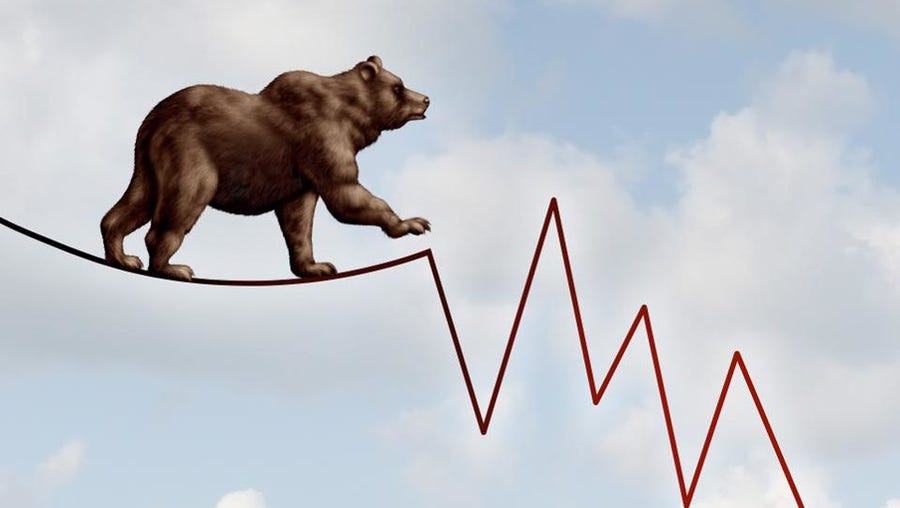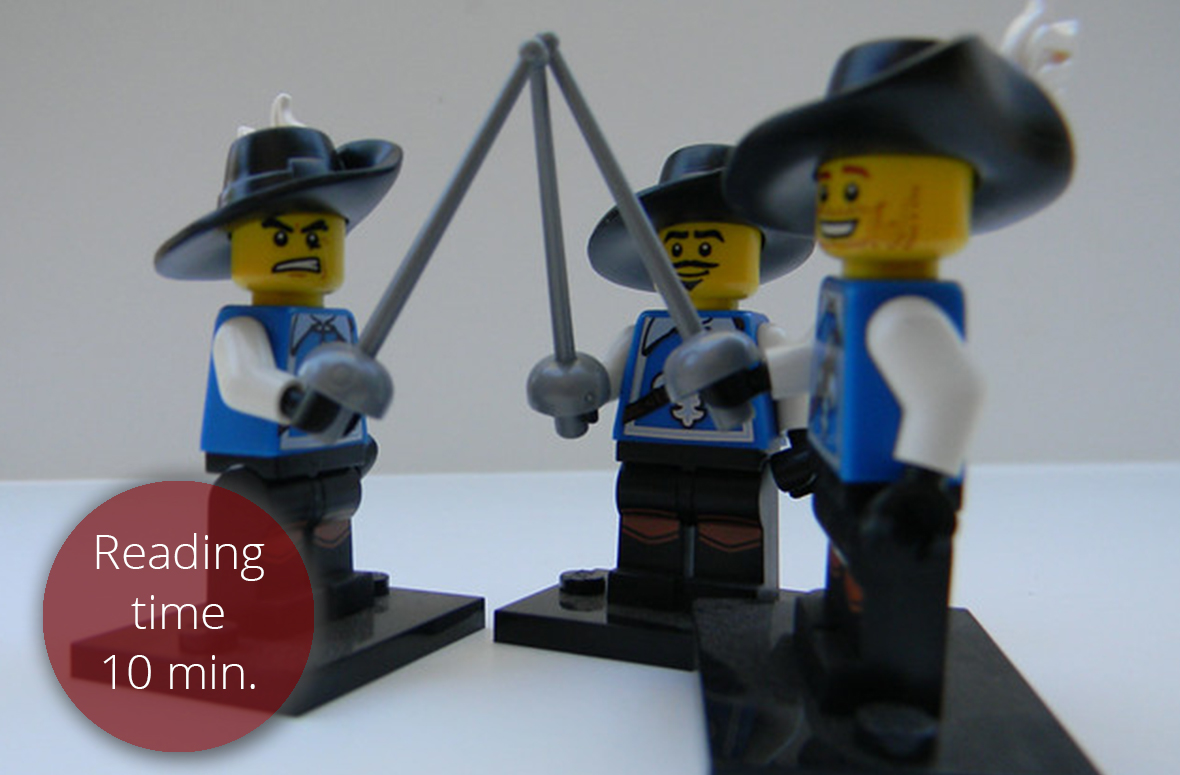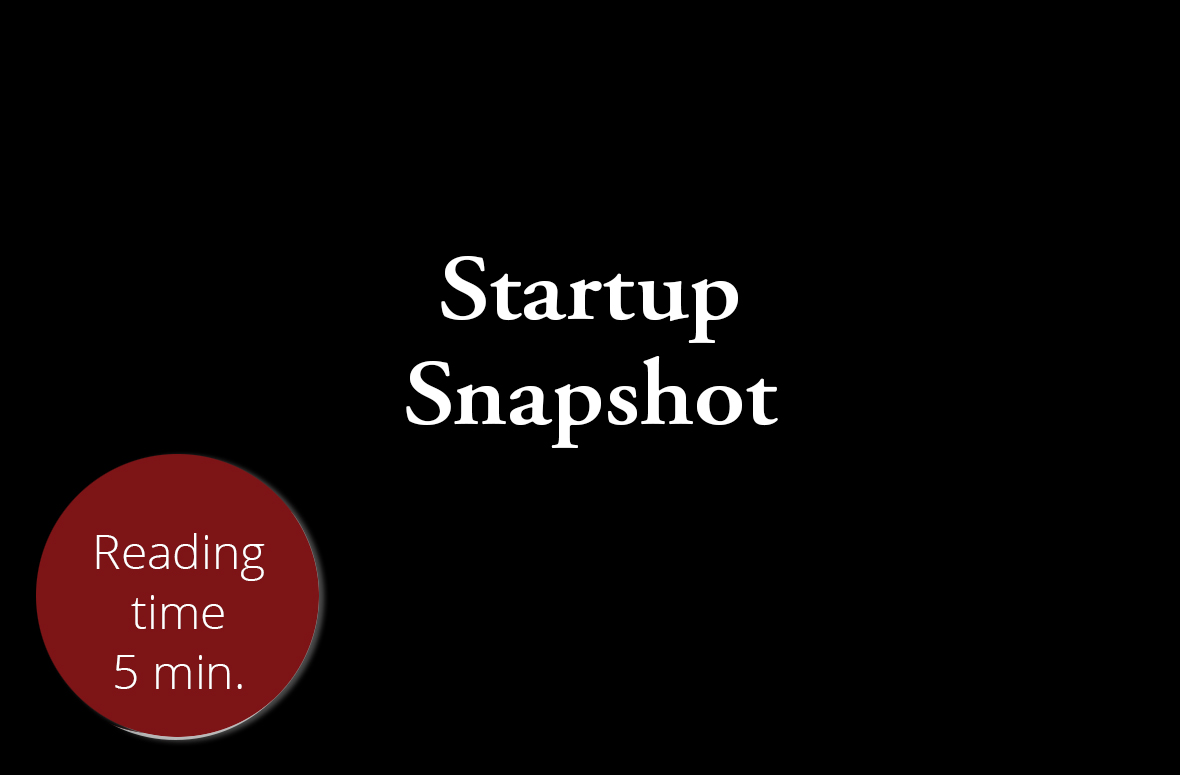Building Startups in a Bear Market
16.05.2022

The spooky season for many is right around the corner. While we do have 6 months until Halloween, we don’t have quite that much time till the bear market starts, as many economists suggest. The bear market looks like the complete opposite of growing revenue, hiring, and raising rounds, but it doesn’t mean people will stop building successful startups.
For the last 10 years, we have been privileged enough to experience a predominantly bull market. Sure, we’ve had our fair share of short-term selloffs, but nothing has felt quite as uncertain and potentially bearish as the state of the market now. The macro environment is heavily impacted by geopolitical uncertainty, from impending rate hikes to foreign conflicts, and the stock market is beginning to bleed in response.
The direct impact on the startup ecosystem is two-fold:
The private market will be affected by the uncertainty of the public market. Growth stage startups are already seeing the impact on their valuation multiples. While this is unlikely to affect the early stages as much (Pre-seed, Seed, even Series A), everything beyond that should begin to feel movement. The common 100–200x multiples days will soon be behind us.
The rate of new venture funds will slow. The logic behind this is fairly intuitive. LPs in venture funds have diversified their capital among a number of different assets. As their public market portfolios shrink, the weighting of the venture funds in their portfolios grows heavier, and they’ll want to rebalance in response. While the many, many funds that have been raised in the past year will still deploy their capital, we can expect fewer funds to emerge in a bear market.
To offset this inevitable change, startup founders can implement a few techniques that can help them to stay afloat.
Being default alive
In his essay, “Default Alive or Default Dead?”, Paul Graham describes the ideal state of a company as being default alive. A default alive startup should be able to continue indefinitely if it receives no more funding, assuming expenses remain constant and revenue growth is what it has been over the last several months. In recent years, we’ve seen an incredible emphasis on growth at all costs. As a result, companies have trended towards more aggressive fundraising cycles, often planning for only 1–2 years of runway. In a bear market, the availability of fundraising capital will diminish over time, so it becomes crucial that a company is able to sustain itself without a new influx of venture cash.
As Paul prudently points out, VCs will often encourage you to err on the side of over-hiring. When things are going well, this seems on the surface to be a reasonable strategy — there are so many things to work on and you don’t have nearly enough hands. However, this will only work if you have sufficient product-market fit. Companies often fail to meet their growth expectations without a strong enough market pull regardless of how many they have hired. Instead, they suddenly have much higher expenses and not enough revenue growth to match.
Keep Burn Multiple Low
One major KPI you’re going to want to track in a bear market is your burn multiple. Coined by investor & entrepreneur David Sacks, a company’s burn multiple simply represents its burn relative to its revenue growth. The lower your burn multiple, the stronger your product-market fit.
In a similar fashion to a company’s default alive status, it would be unreasonable to expect this multiple to be low early on. However, your company’s capital efficiency should increase as the company develops. If you find that your burn multiple is not decreasing over time, you’ll want to entertain the notion that you don’t have as much product-market fit as you might think. Take another look at your KPIs to determine your areas of weakness; if they all look strong, you probably have the wrong KPIs… because if you have to spend a lot of money to move your revenue needle a little, you have a bad business. This is true in general, but it becomes especially apparent in a bear market.
Carpe Diem
Luckily, it’s not all dead startups and depressed founders in the land of the bears. There’s a pretty strong argument to be made that down markets are the perfect time for next-generation companies to be built. A byproduct of the increased churn is more people looking to switch jobs, particularly with in-demand roles such as engineers or designers. This means more candidates will be chosen, and the truly skilled operators will gather at the most compelling companies.
If you’re able to emerge from the smouldering ashes of the bear market victorious, then you’ll find that you’ve built a quality, antifragile business. Companies that defined the last decade, such as Airbnb and Uber, were built during economic downturns, and yours might very well be the next standout company.
For the last 10 years, we have been privileged enough to experience a predominantly bull market. Sure, we’ve had our fair share of short-term selloffs, but nothing has felt quite as uncertain and potentially bearish as the state of the market now. The macro environment is heavily impacted by geopolitical uncertainty, from impending rate hikes to foreign conflicts, and the stock market is beginning to bleed in response.
The direct impact on the startup ecosystem is two-fold:
The private market will be affected by the uncertainty of the public market. Growth stage startups are already seeing the impact on their valuation multiples. While this is unlikely to affect the early stages as much (Pre-seed, Seed, even Series A), everything beyond that should begin to feel movement. The common 100–200x multiples days will soon be behind us.
The rate of new venture funds will slow. The logic behind this is fairly intuitive. LPs in venture funds have diversified their capital among a number of different assets. As their public market portfolios shrink, the weighting of the venture funds in their portfolios grows heavier, and they’ll want to rebalance in response. While the many, many funds that have been raised in the past year will still deploy their capital, we can expect fewer funds to emerge in a bear market.
To offset this inevitable change, startup founders can implement a few techniques that can help them to stay afloat.
Being default alive
In his essay, “Default Alive or Default Dead?”, Paul Graham describes the ideal state of a company as being default alive. A default alive startup should be able to continue indefinitely if it receives no more funding, assuming expenses remain constant and revenue growth is what it has been over the last several months. In recent years, we’ve seen an incredible emphasis on growth at all costs. As a result, companies have trended towards more aggressive fundraising cycles, often planning for only 1–2 years of runway. In a bear market, the availability of fundraising capital will diminish over time, so it becomes crucial that a company is able to sustain itself without a new influx of venture cash.
As Paul prudently points out, VCs will often encourage you to err on the side of over-hiring. When things are going well, this seems on the surface to be a reasonable strategy — there are so many things to work on and you don’t have nearly enough hands. However, this will only work if you have sufficient product-market fit. Companies often fail to meet their growth expectations without a strong enough market pull regardless of how many they have hired. Instead, they suddenly have much higher expenses and not enough revenue growth to match.
Keep Burn Multiple Low
One major KPI you’re going to want to track in a bear market is your burn multiple. Coined by investor & entrepreneur David Sacks, a company’s burn multiple simply represents its burn relative to its revenue growth. The lower your burn multiple, the stronger your product-market fit.
In a similar fashion to a company’s default alive status, it would be unreasonable to expect this multiple to be low early on. However, your company’s capital efficiency should increase as the company develops. If you find that your burn multiple is not decreasing over time, you’ll want to entertain the notion that you don’t have as much product-market fit as you might think. Take another look at your KPIs to determine your areas of weakness; if they all look strong, you probably have the wrong KPIs… because if you have to spend a lot of money to move your revenue needle a little, you have a bad business. This is true in general, but it becomes especially apparent in a bear market.
Carpe Diem
Luckily, it’s not all dead startups and depressed founders in the land of the bears. There’s a pretty strong argument to be made that down markets are the perfect time for next-generation companies to be built. A byproduct of the increased churn is more people looking to switch jobs, particularly with in-demand roles such as engineers or designers. This means more candidates will be chosen, and the truly skilled operators will gather at the most compelling companies.
If you’re able to emerge from the smouldering ashes of the bear market victorious, then you’ll find that you’ve built a quality, antifragile business. Companies that defined the last decade, such as Airbnb and Uber, were built during economic downturns, and yours might very well be the next standout company.











